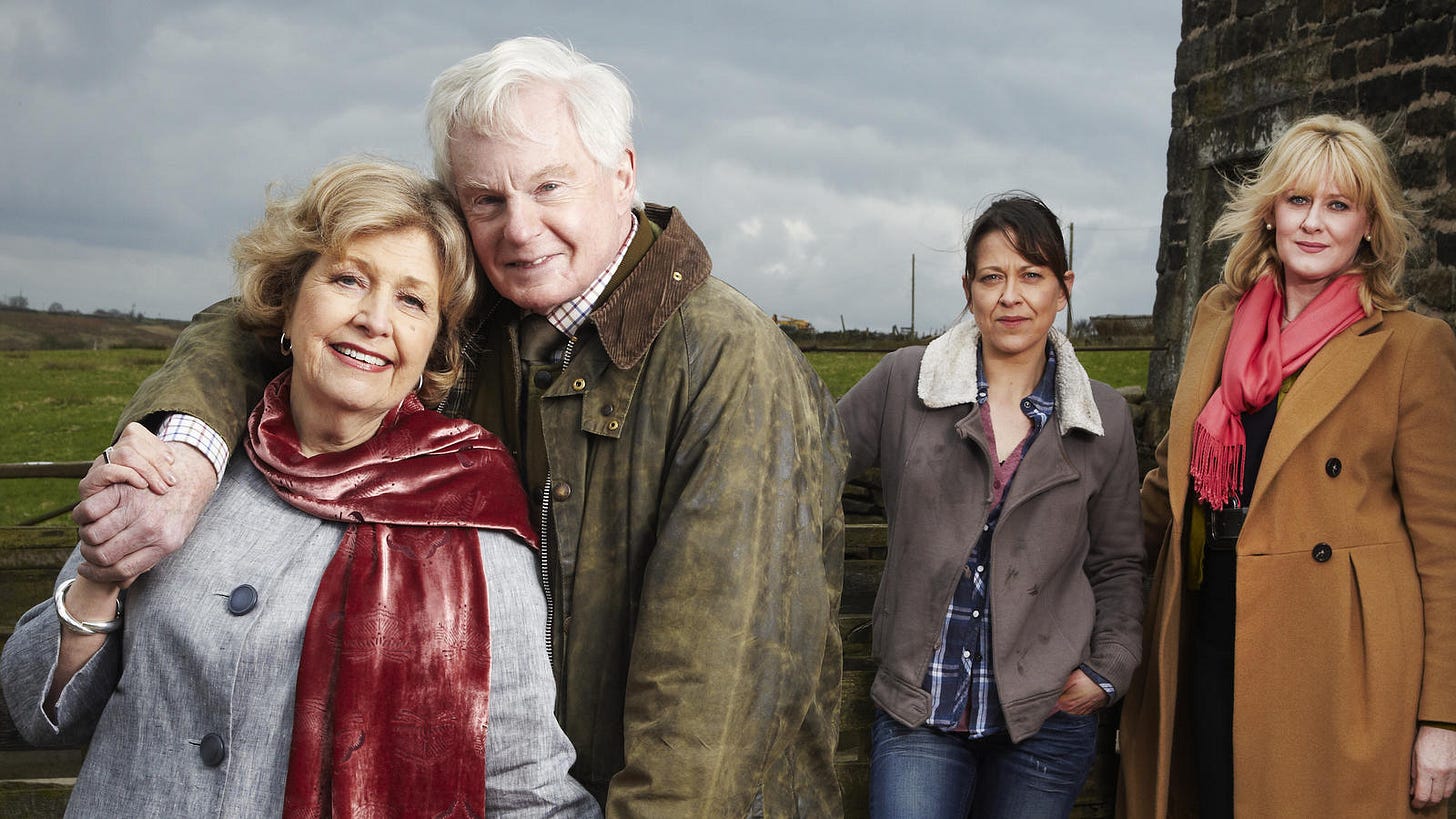This is the Snarky Sunday edition of Snarky Senior — the newsletter from Erica Manfred, which you can read about here. If you like it and don’t want to miss an issue, you can get it in your inbox by subscribing.
You are old, Father William,” the young man said
And your hair has become very white;
And yet you incessantly stand on your head –
Do you think, at your age, it is right?”
—Lewis Carroll
Elder, older, older adult, senior citizen, golden-ager, retiree – what do we want to be called now that we’ve reached “a certain age?” Whatever term you use, it’s guaranteed to offend at least some people on the nether side of 60.
According to Wikipedia, terms and euphemisms for old people include old people (worldwide usage), seniors (American usage), senior citizens (British and American usage), older adults (in the social sciences), the elderly and elders (in many cultures including the cultures of aboriginal people).
The problem is that hardly anyone admits to actually being “old.” A Pew Research Center study of 2,929 Americans age 18 plus found that respondents under 30 said old age begins at 60, but respondents 65 plus said 74. One 90-year-old woman didn’t think old started until you were 95.
How About “Oldie”?
Could this fear of the label “old” be an American phenomenon? The founder of the British print magazine The Oldie says his aim was to produce “an antidote to youth culture but, more important, a magazine with emphasis on good writing, humor and quality illustration.” Can you imagine an American magazine for old people calling itself Oldie – let alone featuring great writing, graphic art and a regular column named “Still with Us,” which catches up with people you might have thought were dead. We’re stuck with AARP which features health tips and fifty or sixty something celebrities who still look 35.
The Brits are more likely to feature old actors in films and TV series without cringe-worthy jokes about their age. Take a look at Last Tango in Halifax about how the late life romance between a couple in their eighties affects them and their families. No tittering, no snickering, no plastic surgery, just great actors at the top of their game in a brilliantly written, nuanced drama.
Old people as comic fodder.
Then there are all the jokey names: oldster, geezer, biddy, fogey – even alta cocker, because Yiddish can be counted on to have the most colorful slang. These rather old-fashioned terms have fallen out of favor in an era where youth can be counted on to use cruder slang, like “old fart.”
If I had to pick one it would be geezer. As a senior who is in love with technology, I proudly call myself a geezer geek, in fact.
Elder has its advocates, but personally I think if you want to use it, you should be an Aboriginal tribesperson – otherwise it sounds pretentious. In this country, “older person” or “older adult” are currently the most politically correct terms.
I kind of like “crone.” You might get slapped if you call an old woman a “crone,” but I think this term should be rehabilitated. Like “elder,” it was once a term of respect.
Why do so many people dislike being called seniors? I prefer it with or without citizen attached; any word that is so often paired with “discount” can’t be all bad. And it’s a euphemism I can live with because it sounds at least a little dignified. We’re unlikely to see “elder discounts” anytime soon. I’m proud to be a snarky senior.
Despite my lack of fondness for the word “old,” I do call myself a “little old lady” occasionally because “old” is modified by “little” and “lady.” I am not a “cute” little old lady, however. The tendency to call extremely old people “cute” is infantilizing and disrespectful. Babies are cute, old people are not. We are venerable at best, cranky at worst.
Ashton Applewhite, anti-aging guru and the author of the admirable anti-aging manifesto, This Chair Rocks, has come up with “olders” to describe us. Young people will never embrace being called youngers so why is Applewhite calling us olders? To me it sounds like yet another euphemism to avoid sounding derogatory.
The Real Issue
Aren’t we just dancing around the real issue? The reality is that people who are over sixty are closer to losing their hearing and eyesight, closer to cancer, heart attacks – closer to death in fact. We are not a culture that is comfortable with death. Isn’t that the real reason why we have such a hard time saying ‘senior’ and no trouble saying ‘teenager?’
If it isn’t, then why do we have such a hard time coming up with the right word?
Why not embrace old, like LGBTQ people have embraced queer and dyke and obese people have embraced fat. Being old is a privilege that many never attain.
Like those other formerly taboo words, old should be reclaimed as a descriptive term, not a dreaded fate.
Spread the snark!
If you know someone who doesn’t take themselves too seriously and might enjoy some snark in their inbox once or twice a week, forward this newsletter their way. You can subscribe (and link to it) here. Email me anytime at Askerica@gmail.com. Suggestions and feedback welcome.





I am a fan of Still Game. Although these are actors in their 50s getting made up to look in their 70s. Show touches on old age subjects with humor and dignity
Feminism rehabilitated “crone” awhile back, but I’m not sure it became widely respected. My pet peeve is “elderly.” After Larry Bush retired from Jewish Currents, he started a very little arts zine called “Alte.” And Jewish Renewal uses “elder” and “saging” (as in sage).